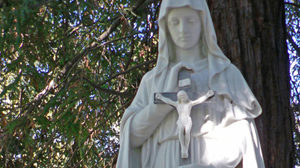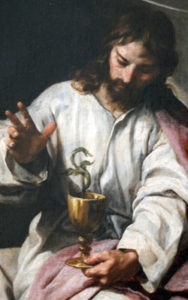Scripture:
Reflection:
‘On whomever you see the Spirit come down and remain, he is the one who will baptize with the Holy Spirit.’ John 1:33
The first time I heard about baptism in the Holy Spirit was when we moved to Chico, California in 1977. I met some people at our new parish who seemed to have a more vibrant faith than I did, and I thought I was a pretty good Catholic! They talked about Jesus like they knew Him. . . I wasn’t even comfortable saying His Name out loud. As I got to know them better, I learned that they had all been baptized in the Holy Spirit, meaning that they simply invited the Holy Spirit they had received at Baptism and Confirmation to work in their lives.
Well, I wanted what they had, so one night I asked the Lord to baptize me in His Holy Spirit too. I invited Him to take over my life as I surrendered to Him. I wanted to get to know Jesus as a person and grow in my faith. No bells or whistles went off, but when I look back, I know that a new chapter in my journey of faith began that night.
The Mass came alive for me after that. The words of the prayers during Mass are incredible! I think it’s the best prayer we can pray. Another thing that happened was that Scripture came alive for me – it wasn’t just an old book of old stories anymore, but through it God was speaking directly to my heart and I couldn’t get enough. I began to notice that the Spirit was nudging me to do and say things, correcting me and bringing certain scriptures to mind when I needed them. After yielding to the Spirit, my faith went from a religion to a relationship with a living, loving Lord.
Scripture tells us the many ways the Holy Spirit can help us, but we often don’t take advantage of it, because we don’t know how. If you’ve never invited the Holy Spirit to be more active in your life, I invite you to do just that as we begin this New Year. Simply tell the Lord you want Him to take over and that you want to surrender to the Holy Spirit. And then get ready for an adventure! Take time to listen, notice and receive all that God wants to do for you and in you. Come Holy Spirit!
Janice Carleton and her husband Jim live in Bainbridge Island, Washington, and partner with Passionist Fr. Cedric Pisegna in Fr. Cedric Ministries. She is the mother of 4 grown children and grandmother of 6. Janice also leads women’s retreats and recently published her second book: God IS with Us. Visit Janice’s website at http://www.janicecarleton.com/ or email her at [email protected].







